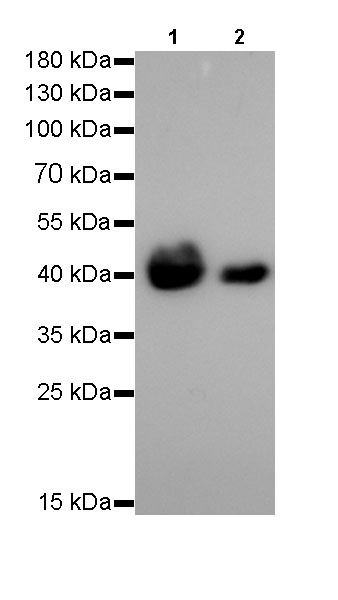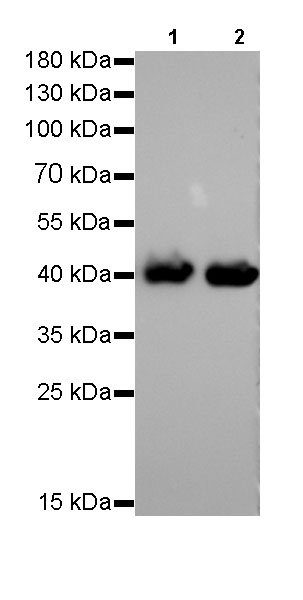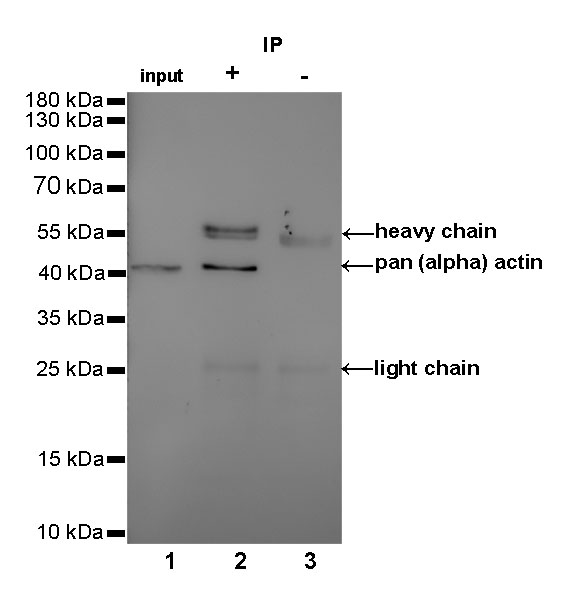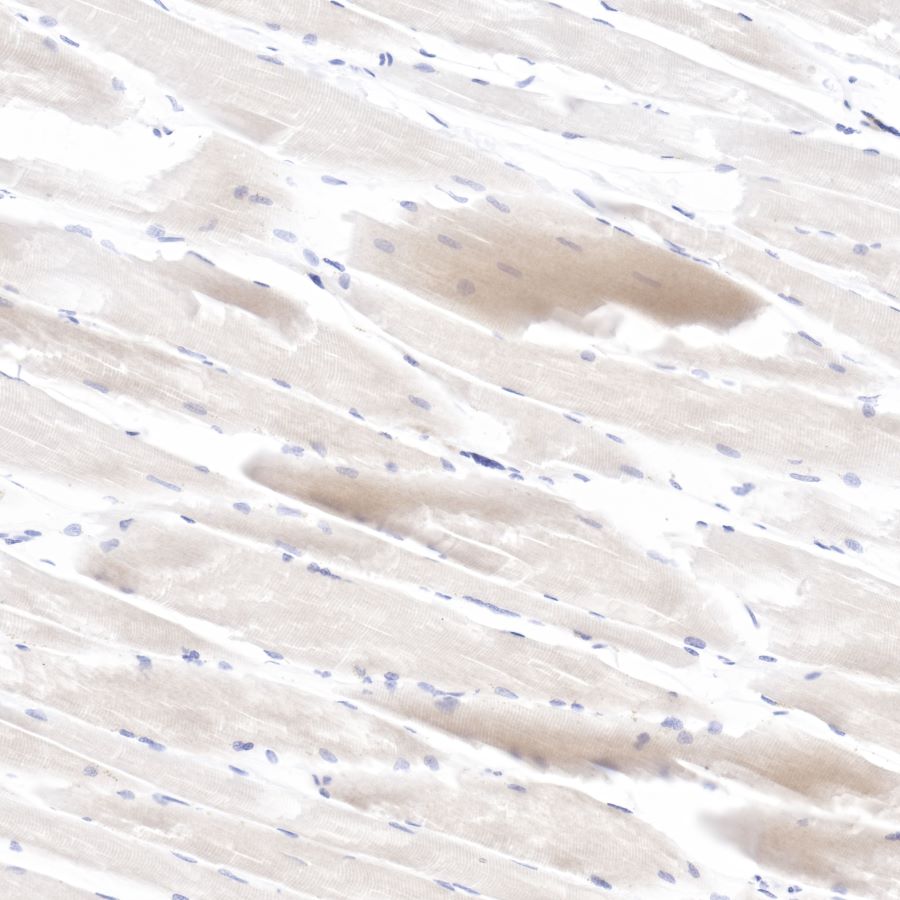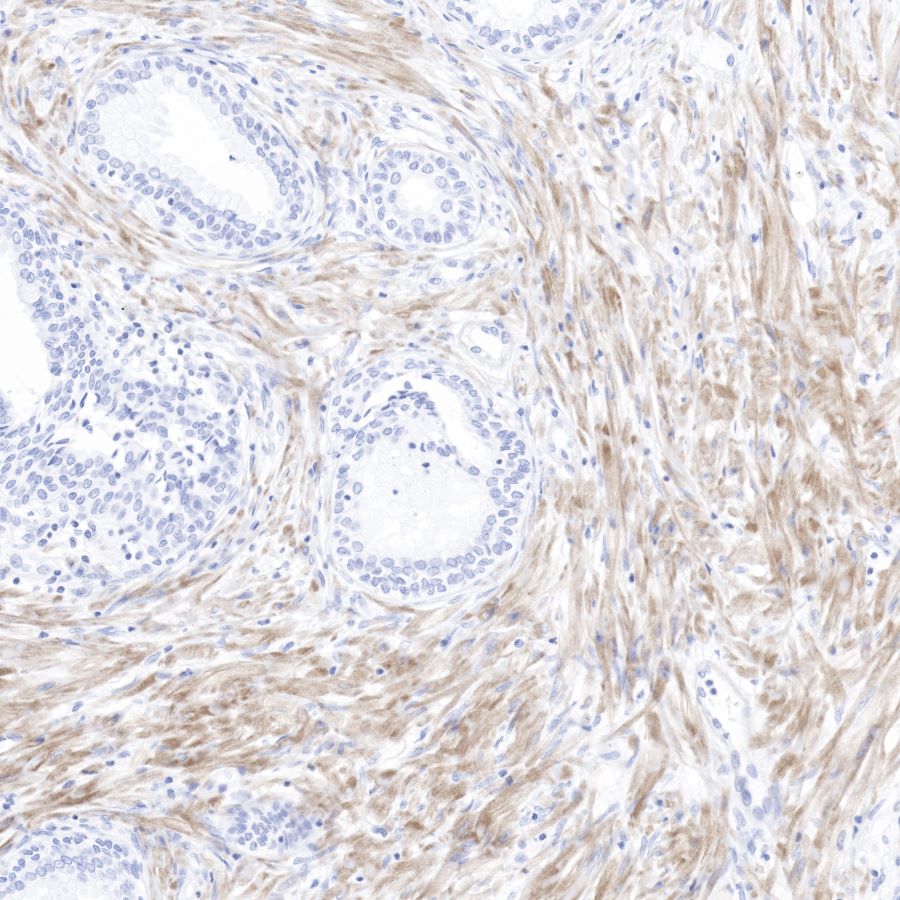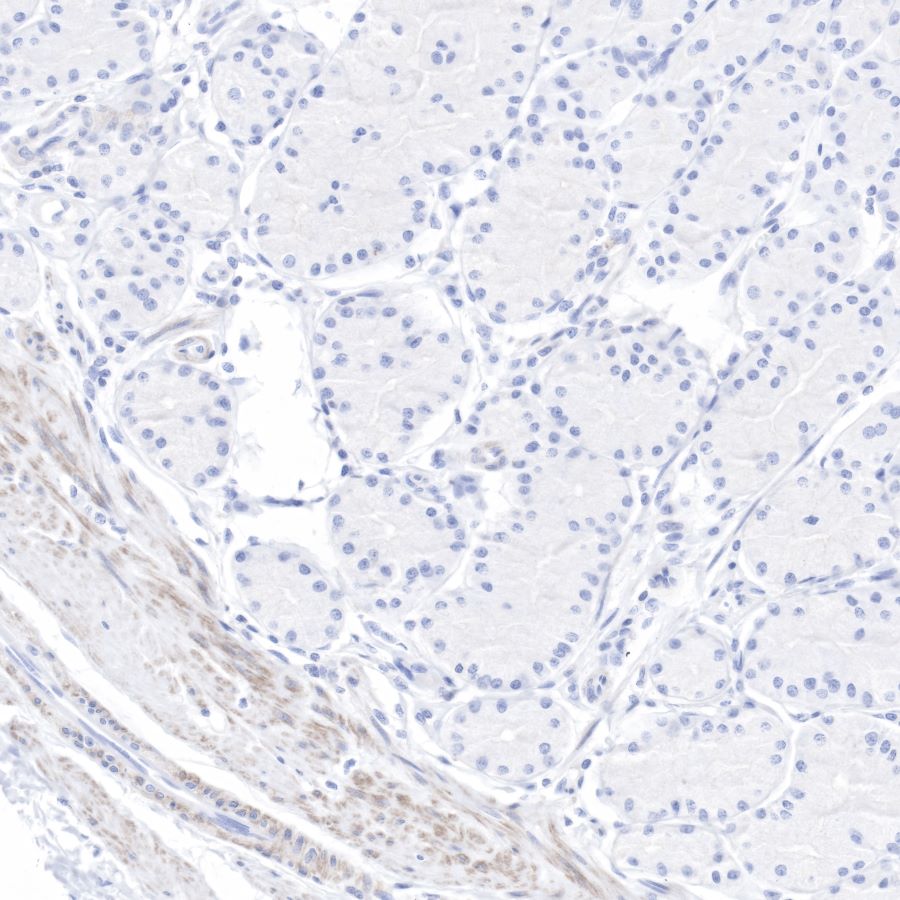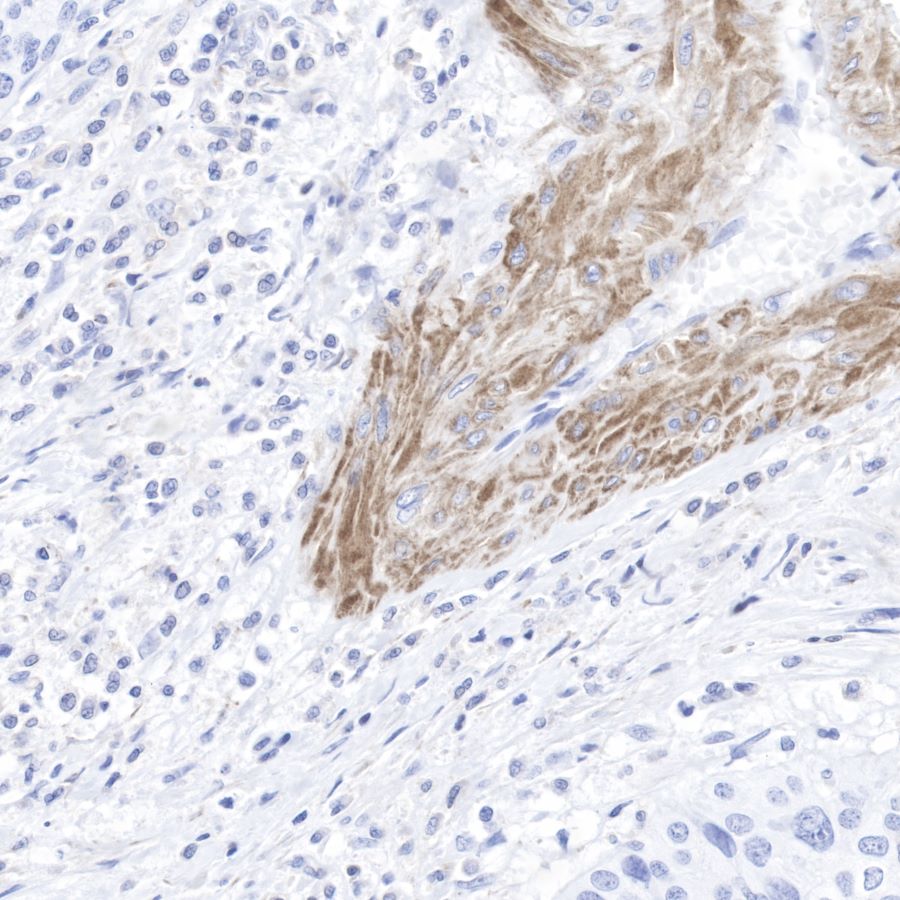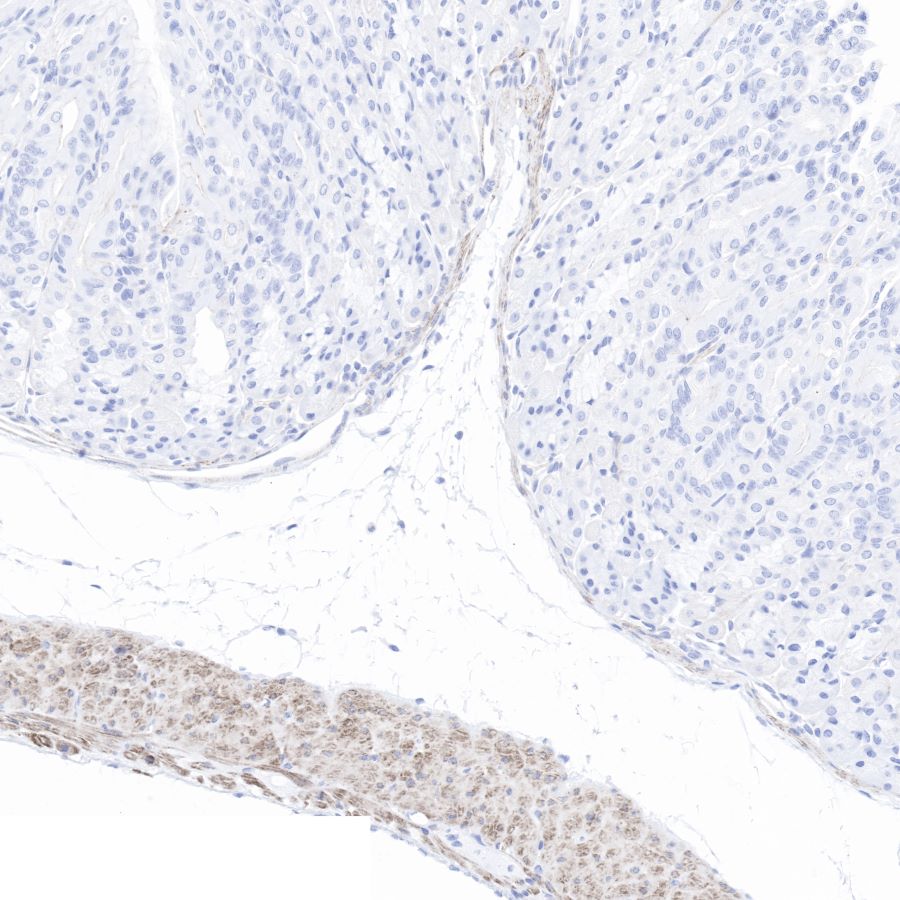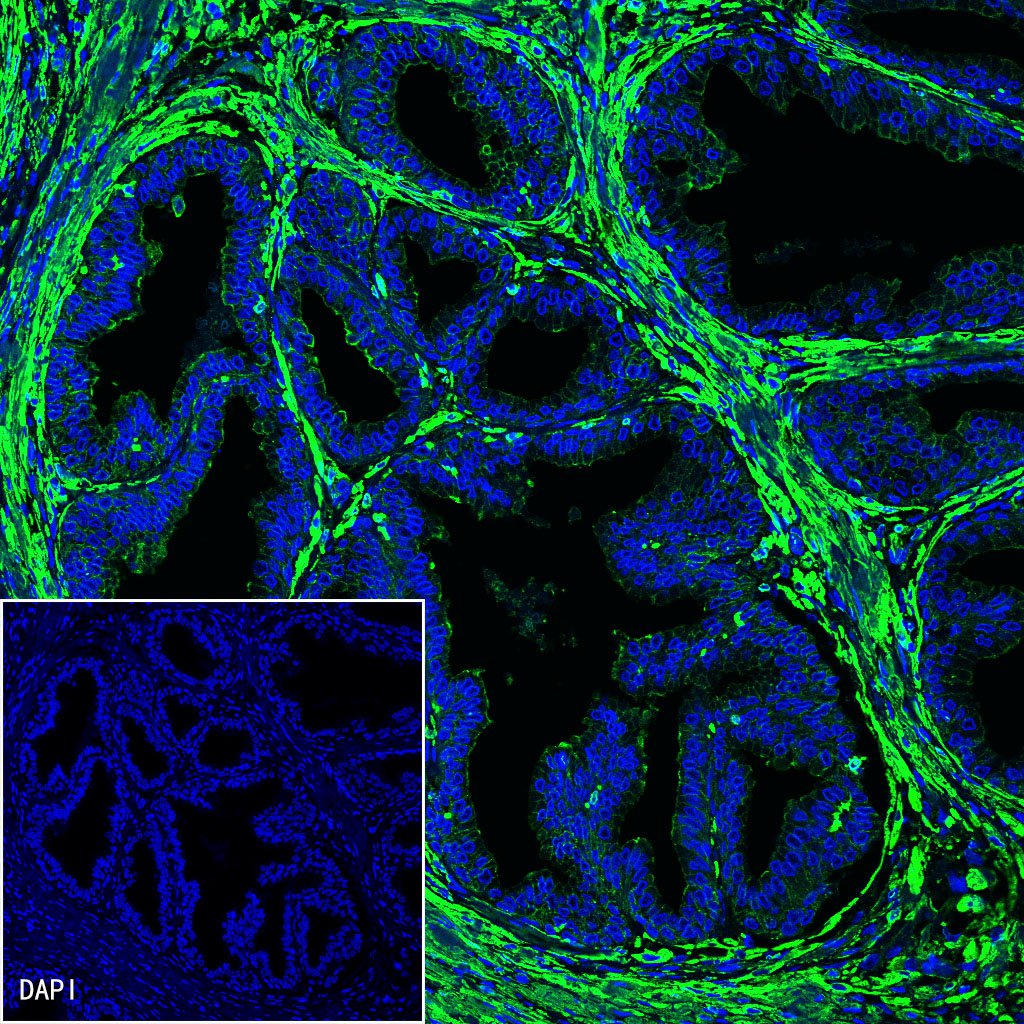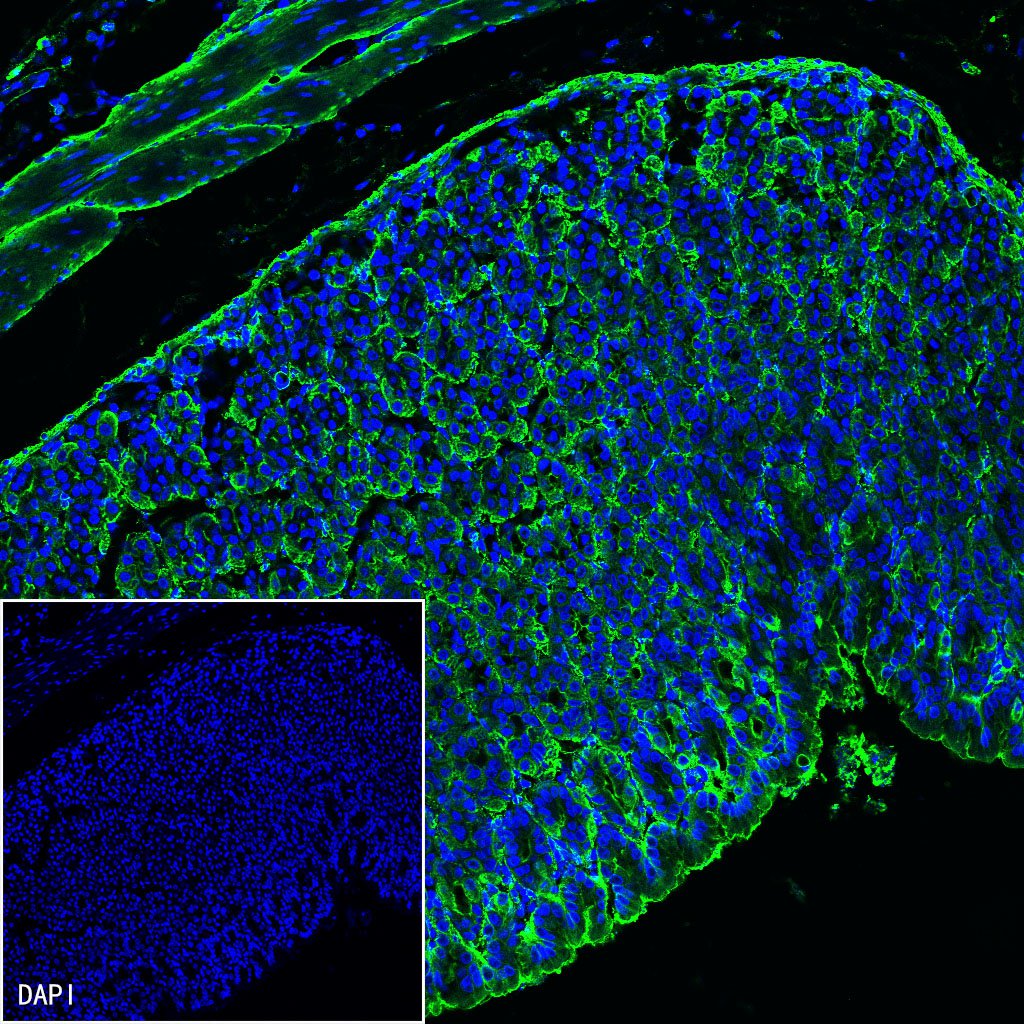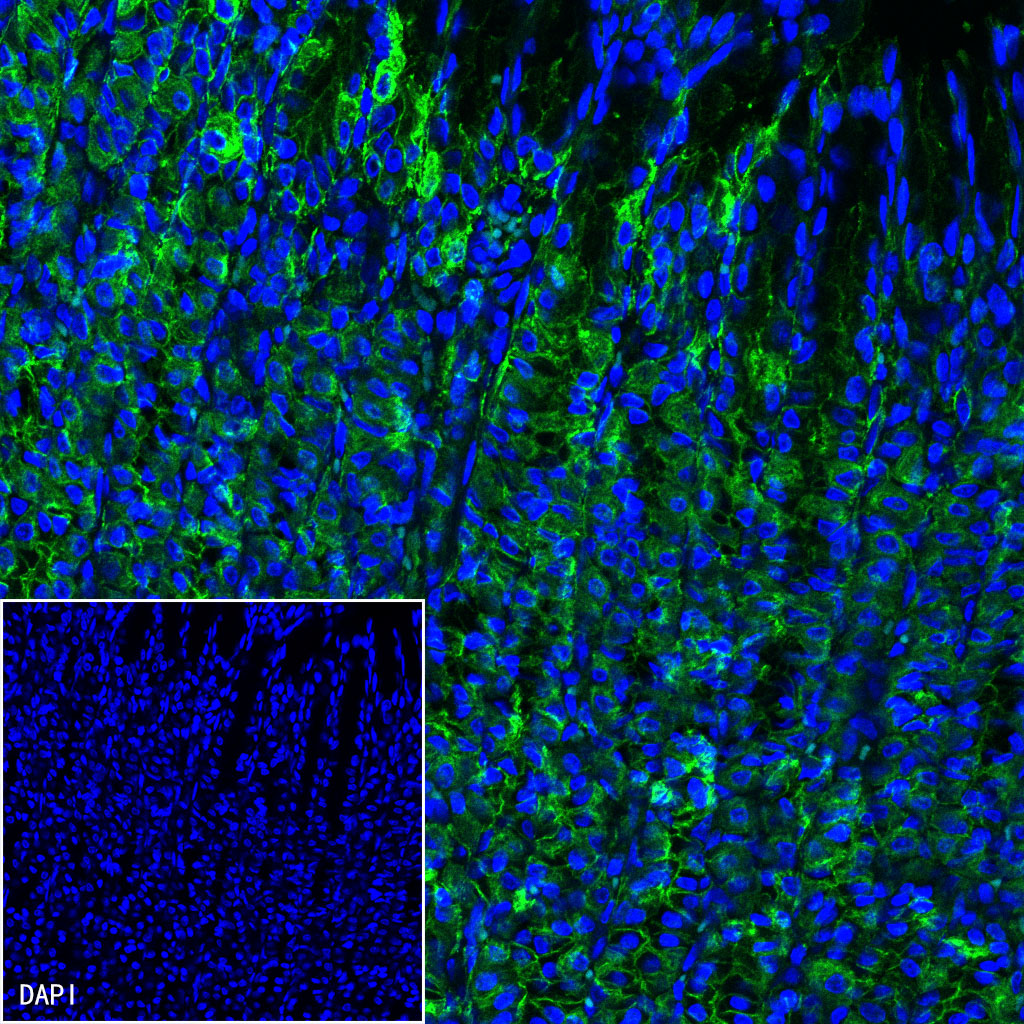Product Specification
| Host |
Rabbit |
| Antigen |
pan (alpha) actin |
| Synonyms |
ACTC1,Alpha-cardiac actin |
| Immunogen |
Synthetic Peptide |
| Location |
Cytoplasm, Cytoskeleton |
| Accession |
P68032 |
| Clone Number |
SDT-044-17 |
| Antibody Type |
Rabbit mAb |
| Application |
WB, IHC-P, ICC, IP, IF |
| Reactivity |
Hu, Ms, Rt |
| Predicted Reactivity |
Av, Fs, Xe, Sn, SeUr, Dr |
| Purification |
Protein A |
| Concentration |
2 mg/ml |
| Physical Appearance |
Liquid |
| Storage Buffer |
PBS, 40% Glycerol, 0.05%BSA, 0.03% Proclin 300 |
| Stability & Storage |
12 months from date of receipt / reconstitution, -20 °C as supplied |
Dilution
| application |
dilution |
species |
| IP |
1:25 |
|
| IHC-P |
1:1000 |
|
| WB |
1:1000 |
|
| IF |
1:500 |
|
Background
Actin participates in many important cellular processes, including muscle contraction, cell motility, cell division and cytokinesis, vesicle and organelle movement, cell signaling, and the establishment and maintenance of cell junctions and cell shape. Many of these processes are mediated by extensive and intimate interactions of actin with cellular membranes. In vertebrates, three main groups of actin isoforms, alpha, beta, and gamma have been identified. The alpha actins, found in muscle tissues, are a major constituent of the contractile apparatus. The beta and gamma actins coexist in most cell types as components of the cytoskeleton, and as mediators of internal cell motility.












